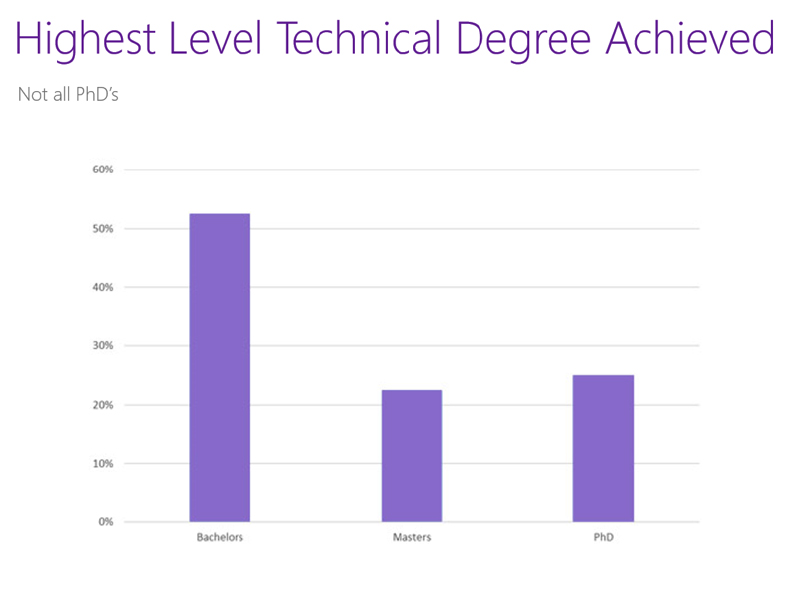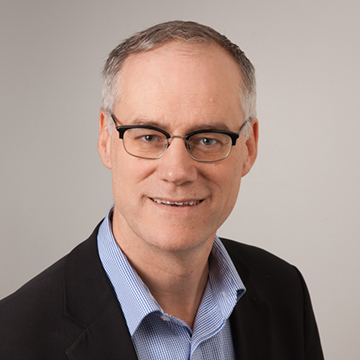There are certainly some iconic and prolific medtech entrepreneurs with Ph.D.’s. Examples include John Simpson of Foxhollow Technologies, David Fischell of Neuralieve, and Thomas Davison of UltraCision. However, there seem to be just as many entrepreneurs with masters degrees. Prominent examples include Alfred Mann of MiniMed, Inc. and the Alfred Mann Foundation (not to mention his four honorary doctorates); Mir Imran, who has founded 20 medical device companies including ,Vidamed, PercuSurge, and Zonare Medical Systems; and Tom Clement of Pathway Medical Technologies.
Once again, the data from our initial set is quite dramatic (see Figure 3).

It turns out that having a bachelor’s degree as a highest academic achievement is about twice as common among medical device entrepreneurs as either a master’s degree or a Ph.D. However, the ratio of bachelor’s degrees granted relative to Ph.D.’s is much higher. An advanced degree would certainly seem to be an advantage, but by no means is it a requirement.
One interesting and characteristic example is Amr Salahieh, currently the founder, president and CEO of Shifamed. He received bachelor’s degrees at Case Western Reserve in Cleveland in both biomedical and electronical engineering. From there he got a job and worked in increasingly senior roles at a few cardiovascular device companies, including Advanced Cardiovascular Systems and Cardiothoracic Systems. Once he met his mentor and partner Fred Khosravi (when Khosravi’s company Embolic Protection, Inc, acquired Sobek Medical), Salahieh helped the company exit to Boston Scientific and stayed on for a couple of years. Since then he and Khosravi have collaborated on a stunning series of successful cardiovascular innovations including heart valve company Sadra Medical (exited to Boston Scientific for $450 million in 2011), Maya Medical (Exited to Covidien), Apama Medical and Kalila Medical.
My main conclusion is that a background in engineering or science is the most common educational starting point for a medical device entrepreneurial career. It appears that an advanced degree confers an advantage, but there are in fact more serial medical device entrepreneurs with a technical bachelor’s degree than with an advanced degree.
My next article will focus on career starts and on the relative merits of starting a company immediately versus first acquiring some experience.
One final note: If you know a serial medical device entrepreneur, or if you are one, I’d appreciate an introduction to be able to include them in the data set, which I will then write about as more conclusions emerge.






